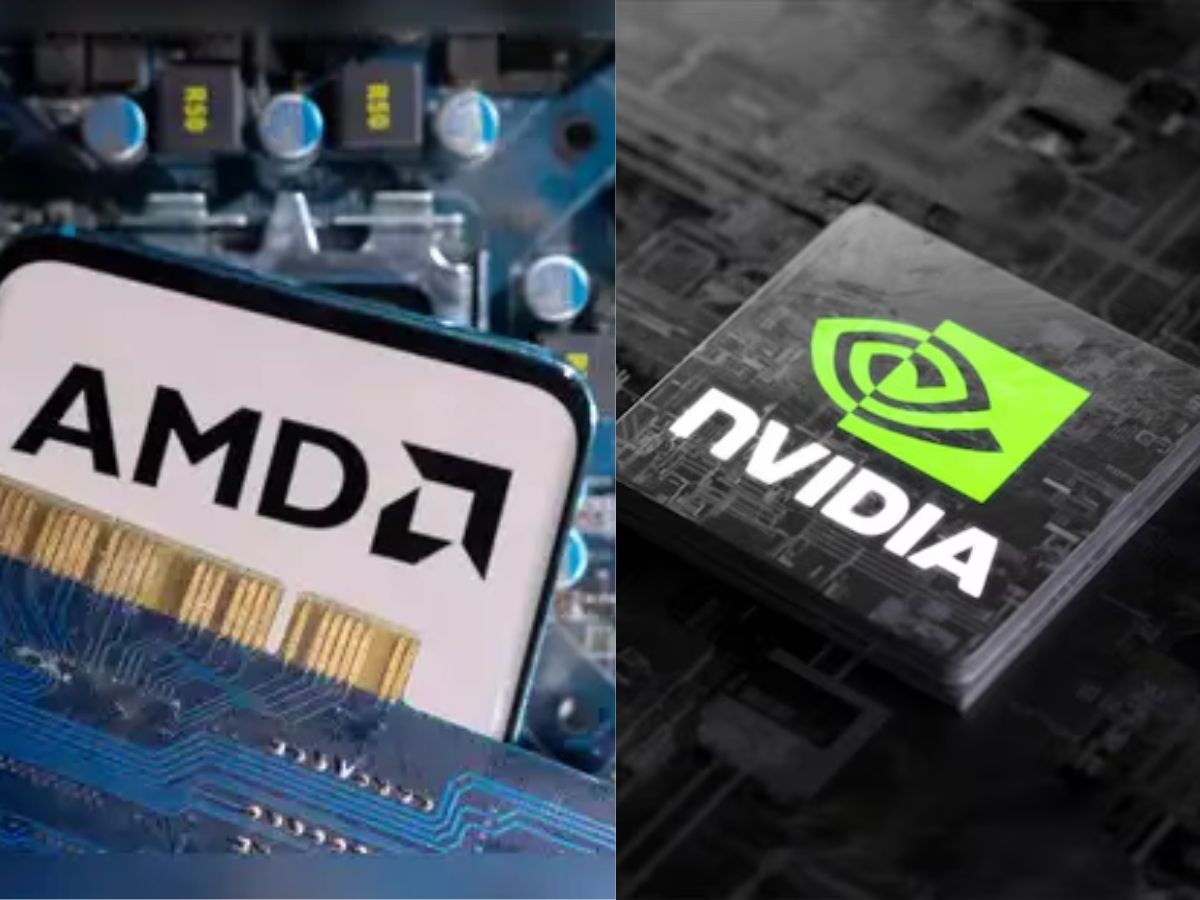Nvidia, the Chipmaking giant and the world’s largest company, along with AMD, are set to pay over 15% of their semiconductor sales in China to the US government as part of a deal to secure export licences to the world’s second-largest economy, according to reports.
Nvidia To Pay For H20 Chops, AMD To Pay For MI308 Chips
Under the arrangement, Nvidia will pay 15% of its revenues from H20 chip sales in China, while AMD will do the same for its MI308 chips. The agreement, first reported by the Financial Times, comes amid ongoing but easing trade tensions between Washington and Beijing.
Also Read: Big Chip Reveal Coming: Six Semiconductor Plants To Power India’s Tech Mission
In a statement, Nvidia said,“we follow the rules the US government sets for our participation in worldwide markets. While we haven’t shipped H20 to China for months, we hope export control rules will let America compete in China and worldwide.”
AMD did not immediately respond to a request for comment.
Nvidia also stressed the broader importance of technological competitiveness,“America cannot repeat 5G and lose telecommunication leadership. America’s \[artificial intelligence] tech stack can be the world’s standard if we race.”
Ban on NVIDIA Chips Lifted Recently
The H20 chip was developed specifically for the Chinese market after the Biden administration imposed export restrictions in 2023. In April this year, the Trump administration effectively banned its sale to Beijing over security concerns. That decision was recently reversed, clearing the way for the new agreement.
These chips, including Nvidia’s H20 and AMD’s MI308, are powerful components used in artificial intelligence applications.
Nvidia CEO Jensen Huang’s Lobbying Efforts
Nvidia CEO Jensen Huang has spent months lobbying both Washington and Beijing to resume chip sales to China. He reportedly met US President Donald Trump last week.
The resumption of chip exports coincides with a thaw in bilateral trade relations. Beijing has eased restrictions on rare earth exports, while the US has lifted curbs on chip design software firms operating in China.
US-China Trade Truce
In May, the US and China agreed to a 90-day truce in their tariff war. Since then, senior trade officials from both countries have met several times, though no extension has been confirmed ahead of the 12 August deadline.
The Financial Times previously reported that China has urged the US to relax semiconductor export controls as part of any potential tariffs agreement.
Nvidia, Apple To Invest in US
As part of his trade strategy, President Trump has pressed major companies to invest more heavily in the US.
Last week, Apple announced it would invest an additional 100 billion dollars (£74.4bn) in the country, adding to a prior pledge of 500 billion dollars over four years. In June, Micron Technology unveiled plans for US investments totalling 200 billion dollars, including a new manufacturing facility in Idaho.
Nvidia has also committed to building AI servers in the US worth up to 500 billion dollars, including the first AI supercomputers to be manufactured entirely in America.






